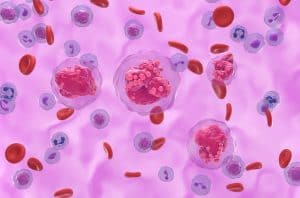NICE criticised for rejection of kidney cancer drugs
pharmafile | August 27, 2009 | News story | Research and Development, Sales and Marketing | Kidney cancer, NICE, Nexavar
Three treatments for advanced kidney cancer have been rejected by NICE, sparking criticism from pharma companies and patient groups.
The drugs were first rejected in April, but NICEs appeal committee has now backed the original ruling.
The decision on the three products – Bayers Nexavar, Roches Avastin and Wyeth's Torisel – is in contrast to Pfizers Sutent, which gained NICE approval in March.
Avastin's manufacturer Roche is particularly critical of the decision, as it says its product was not appraised under the end of life QALY system because of a technicality.
The company has attacked NICE's ruling, saying its decision-making is entirely illogical.
NICE introduced a new end of life QALY at the beginning of this year which is meant to make it easier for new cancer treatments to demonstrate their value to patients near the end of their lives.
But the end of life QALY is governed by strict criteria – and drugs already licensed for other indications are among those barred from being considered under the system.
The appraisal committee accepted Avastin in combination with interferon has a similar clinical and cost-effectiveness profile to Pfizers Sutent(sunitinib), but turned it down because it has a licence in other indications.
NICE say the fact that a drug is already licensed means it is serving a larger population, which makes it ineligible for consideration under the special QALY.
Roche says this is nonsensical, especially as Avastin is not currently routinely reimbursed on the NHS, and has been rejected by NICE for use in colorectal cancer.
John Melville, general manager of Roche UK, said: "This decision is entirely illogical and neither addresses the needs of patients with renal cancer, nor advances the innovation agenda.
"Avastin demonstrates the same value to the NHS as sunitinib and this guidance goes against the spirit of end of life criteria which were devised for this very setting."
Roche's statement added that the decision was fundamentally flawed and reduced treatment access and options for UK patients dying from the disease while patients in other countries were receiving the drugs.
Torisel
Meanwhile Wyeth says its rejected drug Torisel is the only treatment of the three drugs to have demonstrated a significant extension to life in the severely ill group of patients.
"The rejection of this appeal and the failure to recommend Torisel – the only treatment proven to extend life in these patients – is a devastating blow to patients and their families" said Dr Vignesh Rajah, medical director, Wyeth.
"It further accentuates the disparity in cancer care between the UK and other advanced countries, where Torisel and other innovative renal cell cancer drugs are routinely used. NICE's rejection also conflicts with professional treatment guidelines on renal cell cancer published earlier this year, recommending Torisel as first line treatment for poor prognosis patients."
Torisel is licensed to treat a very small group of advanced renal cell cancer patients with the poorest prognosis. Given the rarity of this severe form of renal cancer, it is termed an ultra-orphan condition. NICE has previously acknowledged that appraising drugs for very rare conditions, such as this, presents special difficulties.
Wyeth says NICE failed to fully take into account both the very small number of patients eligible for treatment with Torisel and their degree of clinical need. Consequently, it believes the decision discriminates against the most seriously ill renal cell cancer patients.
Two charities, the Rarer Cancers Forum and MacMillan Cancer Support also jointly appealed against the decision.
Stella Pendleton, executive director of the Rarer Cancers Forum, said: "This a deeply disappointing decision and a bitter blow for patients and their families. It's harrowing for them to know that effective treatments are available but they cant get them on the NHS."
NICE has recommends further research and highlights a number of kidney cancer drug trials which are currently actively recruiting patients, and the charities say patients may be able to gain access to treatment through this route.
Related Content

NICE recommends migraine treatment for NHS use
The National Institute for Health and Care Excellence (NICE) has shared draft guidance recommending AbbVie’s …

GSK’s Jemperli recommended by NICE for endometrial cancer treatment
GSK has announced that the National Institute for Health and Care Excellence (NICE) has recommended …

NICE recommends SC treatment of AbbVie’s Tepkinly for patients with DLBCL
AbbVie has announced that the National Institute for Health and Care Excellence (NICE) has recommended …








